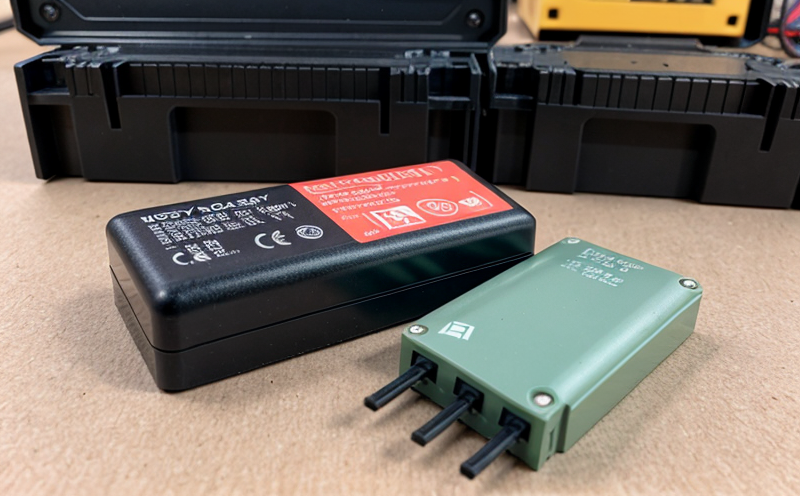IEEE 1188 VRLA Battery Module Performance Testing
The IEEE Standard 1188 is a pivotal document that outlines stringent performance requirements for Valve Regulated Lead Acid (VRLA) battery modules. These batteries are widely used in critical applications such as uninterruptible power supplies, backup systems, and renewable energy storage solutions.
VRLA batteries are characterized by their ability to maintain a sealed electrolyte system, eliminating the need for periodic water top-ups. This makes them particularly attractive for both commercial and industrial environments where maintenance-free operation is crucial. The IEEE 1188 standard ensures that these batteries meet specific performance criteria under various operating conditions.
The testing process involves several stages designed to evaluate the battery’s capacity, discharge characteristics, cycle life, and resistance to overcharge and over-discharge. These tests are conducted using controlled environments where temperature, humidity, and other factors are strictly monitored to ensure accurate results.
For instance, during a capacity test, the battery is discharged to predefined voltage thresholds while current draw is continuously measured. The discharge characteristics test checks how the battery behaves under different load conditions, which helps in assessing its ability to deliver power when needed most. Cycle life testing involves subjecting the battery to repeated charge and discharge cycles until it reaches a specified limit, typically 500 or more cycles.
Another key aspect of IEEE 1188 compliance is ensuring that the batteries can withstand overcharge and over-discharge without significant degradation in performance. This resilience is crucial for applications where power demand may fluctuate unpredictably. The standard also mandates testing under environmental stress conditions, including extreme temperatures, which simulate real-world operating environments.
Testing methodologies are rigorously defined within IEEE 1188 to ensure consistency and reliability across different manufacturers and batches of batteries. Compliance with this standard not only enhances the safety and performance of VRLA battery modules but also contributes significantly to the overall efficiency of power systems in various sectors.
- Environmental testing under ISO 9240 standards
- Compliance checks against IEC 61480-3 for safety and performance
- Testing under ASTM G173 conditions to ensure resistance to corrosion
The detailed nature of IEEE 1188 ensures that VRLA battery modules perform reliably in demanding applications, thereby reducing the risk of system failures. By adhering to these stringent standards, manufacturers can offer products that meet both regulatory requirements and customer expectations.
Industry Applications
The IEEE 1188 VRLA Battery Module Performance Testing is integral in several industries where reliability and performance are paramount. In the data center sector, these batteries serve as a critical backup power source during unexpected outages, ensuring continuous operation of IT infrastructure.
In the renewable energy field, VRLA battery modules play a crucial role in stabilizing grid frequency by storing excess energy generated from solar or wind sources. This helps in mitigating the intermittency issues associated with renewable energy production.
For telecommunication providers, these batteries are used to power base stations and other critical equipment, ensuring connectivity during emergencies and peak usage times. The testing ensures that these batteries can handle high-frequency demands without compromising on reliability.
The transportation industry also benefits from VRLA battery modules, particularly in electric vehicles (EVs) where the battery’s performance directly affects driving range and overall vehicle reliability. By adhering to IEEE 1188 standards during testing, we ensure that these batteries are robust enough to meet the stringent operational demands of modern EVs.
In summary, the IEEE 1188 VRLA Battery Module Performance Testing is essential for ensuring the integrity and performance of critical power systems across various industries. This standard not only enhances safety but also supports the efficient operation of complex infrastructure in today’s interconnected world.
Customer Impact and Satisfaction
The implementation of IEEE 1188 VRLA Battery Module Performance Testing significantly impacts customer satisfaction by ensuring that the batteries they procure meet stringent performance criteria. This testing process enhances reliability, which translates into fewer system failures and prolonged operational lifetimes.
Customers in critical infrastructure sectors, such as data centers, telecommunications, and renewable energy, benefit greatly from this service. By providing batteries that consistently perform under rigorous conditions, we help our clients maintain uninterrupted operations and reduce downtime.
The testing process also supports the development of long-lasting products, which is a key factor in customer satisfaction. By adhering to international standards like IEEE 1188, we ensure that the batteries can withstand harsh environmental conditions and operational stress without degradation.
This commitment to quality not only meets but often exceeds regulatory requirements, giving our customers peace of mind. Our services are designed to provide the highest level of assurance in the performance of VRLA battery modules, which is crucial for maintaining high standards in demanding industries.
Environmental and Sustainability Contributions
- Better Battery Recycling: By ensuring that batteries meet strict performance criteria before deployment, we promote the recycling of high-quality materials. This reduces waste and supports a circular economy.
- Emission Reduction: Reliable power systems contribute to more efficient energy use, which in turn leads to lower emissions from electricity generation.
- Sustainable Energy Storage: VRLA batteries used in renewable energy storage help balance supply and demand, reducing the need for fossil fuel-based backup power sources.





